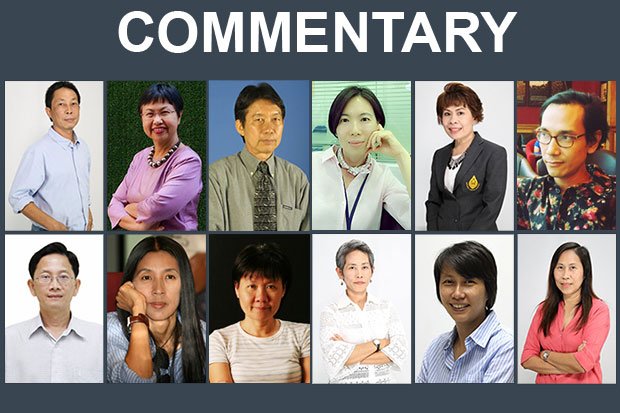
There has always been a special bond between China and Thailand, which hosts the largest overseas Chinese community in the world. In Thai culture, the Chinese influence is easily traced, through descendants whose origins can be found in rural areas of the southern Chinese mainland, from where their ancestors fled poverty, communism and political oppression to the more hospitable environs of Thailand.
China has always been perceived as a friend -- a friend indeed who never leaves a friend in need. The phrase is not just a cliche. Comrades from the mainland have proven their love. During the tom yam koong economic crisis in 1997, this friend lent the debt-ridden Thailand much-needed funds, while other friends gave it the cold shoulder.
To Thais in general, the People's Republic is a lovely dragon. It never preached nor gave orders after the many coups. Instead it gave cuddly pandas.

Despite the close bonds between the Chinese government and the military regime, ties are showing signs of fraying at the people-to-people level. Many Thais look down on Chinese tourists and laugh at their raucous behaviour and poor manners, while showing dismay at Chinese investors opening businesses that compete with local tourism operators, at their land grabs to create and enlarge new Chinese communities. All this is triggering Sinophobia. The difference is, these richer comrades don't care.
My personal view is that Thais are grappling with a new reality. The derailed high-speed train project shows that Beijing does not just want to provide loans and sell train technology, but needs land for development. Another concern is Chinese dams controlling Mekong River water upstream, or in the area known as Lancang. Beijing is controlling tap water for Mekong countries, where it has invested massively to turn the area into a strategic new market and investment ground.
Not so favourable in my view is news of discontent and protest among Myanmar labourers towards mining projects operated by the Chinese, and attacks on Chinese businessmen and citizens in Laos. Chinese investors are also criticised for their poor treatment of labourers in some African countries.
Perhaps it is time for Thais to revise their perception of China and see their northern comrades for what they are. Of course, the Chinese are really fond of Thai Gua Ren, or khon Thai, and love to travel to our country. But they are also investors, profiteering businessmen, artists and activists, with different political and cultural beliefs. In short, they are human, with pluses and minuses. They are not just tourists with Gulag mannerisms, primitive and unpleasant toilet etiquette and fat wallets. They are not friends we can turn to when a fight with another friend gets nasty.
Personally, I am passionate about China's culture, political history and especially people. But despite this, I am becoming more alarmed about Chinese investment in Thailand and especially in the Greater Mekong Sub-region.
Indeed, there is growing discontent among local people towards the exploitation of natural resources by Chinese investors.
But it is unfair to blame Chinese investors, or any investors, and guests for their misbehaviour. After all, foreign investors are like guests. Their behaviour is proof of the so-called theory of broken windows. In this theory, people are influenced by their environment. If a house has broken windows, dirty lawns and bad owners, crime is likely to soar. If our government protects the country's interests, and our law enforcement is strong, investors will behave accordingly.
For those who raise their voice that dams in China are taking away water in the Mekong River, please open your eyes. Thai companies and the Electricity Generating Authority of Thailand are investing in the controversial Xayaburi dam. Thai companies are investing in dams on the Salween River. Thailand cooperated with China in blasting reefs in the Mekong to allow cargo ships from Yunnan to travel downstream. That affected villagers in Chiang Khong district in Chiang Rai who have been faced with unpredictable water levels in the Mekong for over a decade.
As our Sinophobia gathers momentum, I believe we need to look at ourselves too. Perhaps the worst enemies are ourselves. It is not a nice time for us. We can choose between the crouching war elephant, ready to protect the country as in the past. Or we can become a cuddly and docile jumbo, forced by a mahout to appease, and wag our trunk in exchange for tidbits.
Anchalee Kongrut writes on the environment in Life section, Bangkok Post.
